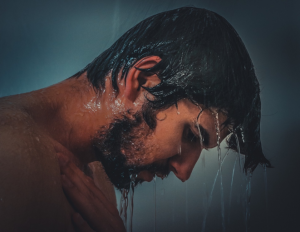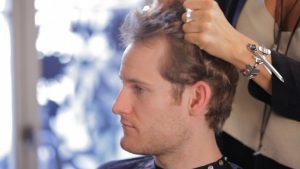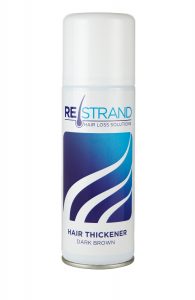Home » Hair Loss Help (Page 8)
Category Archives: Hair Loss Help
Dealing with hair loss in women: facts, tips and information
As a woman, losing your hair can be a huge blow to your confidence and self-esteem, and understandably so. Noticing that the volume isn’t what it used to be, or the hairline starting to recede will naturally raise alarm bells, for both sexes, but for women, it can be an especially sensitive issue.
Hair loss can develop through many reasons such as; genetics, stress, a medical condition or treatment of that condition. It is also a fact that around 50% of women lose increased levels of hair than they normally would following child birth.
More recently, cases of hair loss among women have increased as part of the ageing process, is an issue that increasingly affects women as they get older. Fortunately, there is no need to simply accept the inevitable, there are ways and means of counteracting what is happening to your locks which can assist in remedying problems that have arisen.
Below you will find a handful of useful facts, tips and information that can help those who are dealing with the issue of hair loss:
Chemicals
Chemicals treatments you can receive in salons are very harmful to the hair. For example, bleaching, chemically straightening, and lightening your hair are all treatment that can lead to significant damage being caused to the hair shaft, which weakens the hair, resulting in loss of hair. Women who are conscious of looking after their hair should always aim to keep to their natural style and colour, or as closely as possible, should they be experiencing hair loss or thinning. If this guidance is not taken on board, the problem will just get worse. If chemical processing is something that is used regularly, it is vital to remember to treat the hair with a deep-conditioning treatment at least once every seven days; this will provide the best results for healthy hair.
Product picking
Due to the fact that both hair loss and thinning hair are rather large concerns, cosmetically, for women, there are lots of products on the market that are designed specifically with restoring hair growth, in mind. The products come in the form of shampoos and conditioners that are made containing various oils and minerals that can assist in hair growth, as well as maintaining general healthy hair and increasing scalp health. If a person is suffering from thinning hair, there are also products that can work in tandem with these products, such as a hair thickening spray, which gently coats and matches each hair to give you added texture and thickness.
Take heed on high heat
As we mentioned with chemicals, heat is similarly hard on hair. The main reason heat is so detrimental to hair is because it causes bonds within the hair strands to fracture, triggering the onset of brittle hair, which subsequently breaks and falls out. If a person wants to use curling tongs or straightening irons, they should ensure they do not leave them on one area of their hair for extended lengths of time, roughly ten seconds is the recommended period for any single section of hair.
It’s also worth bearing in mind that if sizzling is heard, then the heat setting is too high, so the hair is going to be burning. Heat-protecting sprays and allowing the hair to dry as naturally as it can be before using heated tools will reduce the damage the tools are inflicting on your hair.
How to help handle hair loss
There can be a variety of psychological impacts that are the result of hair loss. If a person loses hair, living with it can be made easier if the person is able to come to terms with it. That is not to say they have to accept their new appearance; as we mentioned, there are plenty of products out there to remedy the situation, but overcoming the initial realisation and looking at how to deal with it will help in the long run.
Experts say that how well someone copes with looking at themselves in the mirror is all reliant on their coping strategies self-esteem, and personality, as well as the support around them. Essentially, it is vital to try and promote positivity in one’s life, and hopefully, with all the options available, this is something that can be a part of anyone’s lives if they are going through hair loss.
Can diabetes cause hair loss?
There are several causes of hair loss, from genetic pattern baldness to conditions such as alopecia. These are commonly known in society, but one you may not have realised is the condition of diabetes. For women who are unaware they have diabetes, hair loss can be one of the first signs that they have the condition.
What is diabetes and how does it affect you?
Diabetes is when your body is unable to produce enough insulin, cannot use the insulin production efficiently, or sometimes both.
Insulin is the hormone in your body that transfers the sugars from the food you consume from the bloodstream into the cells. This process happens so that the sugars can be stored for when the body needs energy resources.
Diabetes can create a sugar build up in the blood that affects organs around the body; it can also damage your blood vessels whose role is to carry oxygen around the body to nourish all your organs and tissues.
What do I do if I’m losing my hair because of diabetes?
The first key advice to follow is to seek medical advice to discuss the symptoms of your diabetes. The doctor may recommend adjustments in lifestyle, including your diet, as well as the medications you use to help your blood sugar levels and help alleviate this symptom.
If diabetes is the only reason for the hair loss, this symptom is more than likely going to be a temporary problem, once your hormones readjust after medication. Although, it is possible that the hair growth rate will be slightly slower than what is normal.

Why does diabetes cause hair loss?
Hair growth normally goes through the following process:
Active growing stage:
During this stage, which generally lasts for two years or more, hair will grow at a monthly rate of 1 to 2cm.
Resting stage:
The next stage is called the ‘resting phase’; this can last anywhere around 100 days. Once the stage is complete, some of the resting hair can fall out.
If your blood vessels are damaged, your body may not be able to deliver enough oxygen to nurture your hair follicles, therefore affecting the natural hair growth cycle outlined above.
When you have diabetes, your body affects this natural hair process resulting in your overall hair growth. The condition can also cause you to lose more hair than usual after the resting stage. Additionally, when the hair re-grows, it can grow at a slower-pace than normal.
Infections, due to the high blood sugar levels, can also affect the immune system, thus leaving people suffering with diabetes susceptible to infections and leaving their bodies to struggle to fight it off. Some infections can have the ability to disrupt healthy hair growth.
People with diabetes are more than likely to suffer with a condition called alopecia areata, particularly when they are diagnosed with Type 1 diabetes; this is where the immune system attacks the hair follicles and can result in hair loss across many areas of the body. Other conditions related to diabetes can also be the determining factor in hair loss; this includes stress from living with the chronic illness, side effects from the medicine used to treat diabetes or thyroid disease, that some people with diabetes can develop alongside the condition.
How do people overcome hair loss from diabetes?
Experiencing excessive hair loss can be a stressful time and can cause a lot of anxiety for the person involved. Generally, hair loss can be dealt with in several ways, and some cases can be temporary, so seeking medical advice is essential to determine the cause of your hair loss. If you have alopecia areata, your hair may be able to grow back with the help of a specialist.
Exercise is often recommended for a lot of sufferers as completing exercise can decrease the high levels of blood sugars in the system. In addition, exercise can help the body deliver oxygen to all of the body’s cells, including the hair follicles.
Ensure that your body is kept highly nourished from your diet. Nutritional foods such as fruits, vegetables and grains can help you have healthy-looking hair and hair that is more resilient against the factors that cause hair loss.
Remember to not over style your hair every day, as this can put your hair under a lot of pressure. People with diabetes can often have thinner hair, so it’s essential to not continually put your hair follicles under harsh conditions, such as colouring and styling.
High or low blood systems can cause issues for the cardiovascular system, so ensuring you control your blood sugars can prevent the onset of hair loss. If the blood is unable to reach the hair follicles, the hair will be weak and brittle that can increase the chances of damage. If poor circulation issues continue the hair will die due to lack of nutrients, and this will result in balding.
These processes will take time to see results, but you will see benefits from them in the long-run.
What instant fixes are there for my hair loss?
If your hair is falling out because of diabetes, or for any other reason, there are many solutions to help you conceal the issue. Managing your hair loss can be an upsetting experience, but with our easy-to-use hair thickener, you can see an instant result for hair loss. Our products are designed to naturally conceal any problem areas to help you feel more confident day-to-day.
If you would like to discuss more about our instant balding fixes, don’t hesitate to get in touch today.
How to get thicker hair for men
Gradual hair thinning is a natural part of the ageing process, but some men as young as their teens and 20’s can experience male-pattern baldness. For most men, this can cause stress which can affect their self-esteem and stop them from enjoying everyday life. Luckily, there are many solutions and UK hair thickening products available to help naturally thicken hair.

Nutrition
We all know that eating the right foods can work wonders on our bodies, but did you know that there some foods which can help make your hair thicker? Healthy hair can be achieved with a diet rich in certain foods, which are also of benefit to your overall health. Take a look at some of these foods below:
Avocado
Copper, found in avocado, is one of the best minerals for your hair and your skin. Copper can build up the collagen and elastin on the skin which holds hair to the follicle. This mineral can also help balance out hormones, so hair grows stronger and aids other reactions in the scalp that strengthens lipids in the hair. You can find copper in other foods like shellfish, beef, whole grains, dark leafy greens, nuts and even chocolate.
Pumpkin seeds
Full of zinc, pumpkin seeds help with cellular turnover, cell division and growth that helps form keratin, a protein that makes up hair. Zinc can also help preserve your hair colour and prevent you from experiencing dandruff. Pumpkin seeds can be easily added to salads or just enjoyed as a snack. You can also find other sources of zinc in beef, sesame seeds, lamb, oysters, lentils and chickpeas.
Whole grain cereals
Whole grain cereals are rich in iron, which is one of the most important minerals for your hair. Iron also increases energy levels, nourishes your skin and keeps your heart healthy, which are all important for overall health and wellbeing. As well as being found in wholegrains, beef, dark meats, chicken are also rich in iron.
Lentils and cashew nuts are plant-based sources of iron, but you should try to pair them with vitamin-C-rich foods like tomatoes, strawberries or kiwi which will help your body absorb the iron.
Don’t wash your hair too often
Try to keep your hair washing to a bare minimum. If your hair is thin, it will probably get greasy rather quickly, but washing your hair too often will only encourage your scalp to produce even more oil, therefore making it greasy quicker. This being said, it is still important not to let your hair get too greasy, as this can cause hair to shed more than usual. It is all about maintaining balance. Why not try this process when washing your hair?
- Mix rosemary oil, sunflower oil and jojoba oil together and let your hair soak in it. This mixture can stimulate cell division and dilutes blood vessels which in turn stimulates hair follicles.
- Leave the mixture in your hair for around an hour and then rinse it out using organic apple cider vinegar. The acidity of the vinegar will balance out your natural pH levels so that it won’t dry out your scalp like some shampoos do. This will leave your hair feeling soft and shiny, and it will also ensure that the oils will be rinsed out of your hair.
Look after your hair
Your hair needs to be looked after properly, and sometimes it is often overlooked. Below we have some tips to ensure you keep your hair nice and healthy.
- Avoid hot showers and shampoo your scalp, rather than your ends.
- If you condition your hair, only condition the ends.
- Pat your hair, don’t rub to dry it.
- Avoid over washing.
Just remember to eat right, and really take the time to look after your hair, and we are sure you will see the benefits. However, for faster results, we can help you get thicker hair that can give it added texture as well as added thickness with our Instant Hair Thickener. Why not take a look at our products online today?
Why Hair Loss in Young Men Is Increasing And How To Solve It
If we looked back just a decade ago, the lion’s share of males who had a receding hairline were middle-aged men. However, in recent years, boys as young as 16 are reported to be seeking advice following worries of a receding hairline. This is backed up by the fact that doctors in India have cited that hair loss among young men is steadily increasing.

This is not an issue that seems to be fading, and now the issue is so bad that male hair loss was the big topic of a workshop that 300 dermatologists from all over India sat in on. The people who are at the top of their game all sat and discussed treatments such as hair transplants, laser hair removal and anti-aging therapies, with many voicing concerns that Male Pattern Baldness is showing signs of advancing by at least a decade. Quite shocking, if you weren’t already aware, don’t you think?
Head of Dermatology at Ahmedabad Civil Hospital, Dr Bela Shah, spoke to the India Times at the time, saying: “Earlier, one would get patients showing signs of baldness in their late 30s or early 40s. Now, we get teenaged boys, some still attending school.”
So, what is at the root of the rise in hair loss among young men?
The scientific reasoning behind this issue is that hair starts to thin and the hairline recedes as a result of levels of dihydrotestosterone (DHT) rising. This hormone imbalance is down to genetics, so there’s not much you can do about that. However, it can be enhanced if you are under stress because this sends a message to the genes triggering hair loss to occur at a younger age.
Is there a way to overcome Male Pattern Baldness?
The increase in the volume of young men who are going through hair loss has caused many to suffer from anxiety and reduced levels of confidence and self-esteem as a knock-on effect. It has even been said to be ruining the chances at marriage for some. Subsequently, there has been an increase in interest of methods for overcoming the issues these men are suffering from.
One of the ways that a lot of males look to solve the problem is opting for hair transplant surgery. However, this can be an expensive solution, and thanks to today’s technology, there is a host of other techniques and products that can be used to help men deal with their loss of hair. For example, hair thickener products can do wonders, and this is an option that is perfectly discreet. This organic, coloured hair thickener can be sprayed directly onto the hair giving the user instant thickening!
How does this work?
Hair Thickener works by covering the scalp and hairs with a fine layer of liquid powder which bonds to the hair strands, thickening them. This results in the appearance of a thicker, fuller head of hair. What’s more, for those who do use the hair transplant route, once any scarring has healed hair thickener can be used to complement the end-product.
If you are one of the thousands of men who are silently continuing to live their lives unhappy with their appearance, then why not try a thickening spray and see what the results can do for you?


Recent Comments